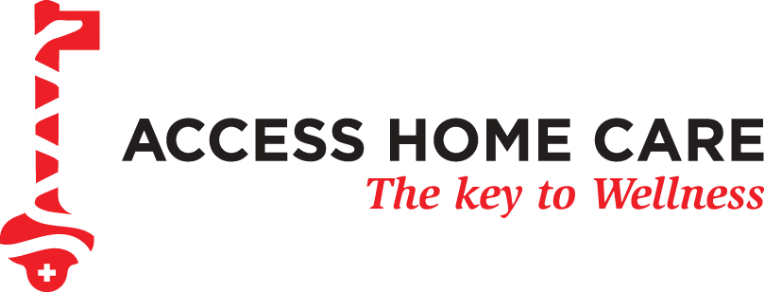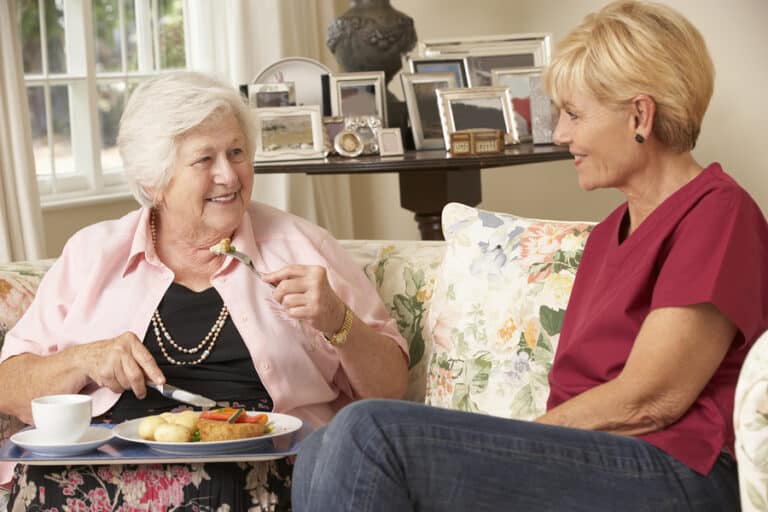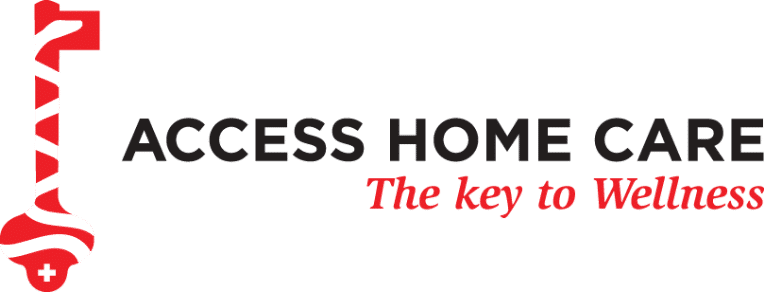
It’s no mystery that as people age, their bodies change, both inside and out. But, did you know that those changes also bring about a shift in nutritional needs? The way that the body processes food changes because of the ways in which the body changes. Understanding the reasons nutritional needs change and how to respond to the changes can help you and your parent’s elder care provider to create meals that will be nutritionally sound and healthy for your parent’s changing needs.
What Changes Affect Nutritional Needs?
It’s natural for metabolism to slow down as people get older, but those who are inactive experience an even greater reduction in metabolism rates. As a result, older people often need to eat less to avoid gaining weight, which makes it necessary to focus on getting the proper nutrients even with the smaller portions. In general, women who are moderately active need about 1800 calories per day and moderately active men will need 2,000 calories per day. The number of calories goes up or down depending on activity levels.
Another physiological change that can affect nutritional needs is that the body produces less of the fluids needed to break down foods during the digestive process. This change makes it more difficult for the body to absorb certain nutrients from foods.
Sometimes as people age their appetites decrease as well. There are a couple of reasons this may happen. Among those reasons are depression and loneliness. Senior citizens who are experiencing these emotions sometimes lose interest in eating, which can compromise their health. Or, they may find themselves engaging in emotional eating, causing them to gain weight. There are also medications that may suppress appetite. Other medications can cause digestive problems and upset stomach, which may cause a person to eat less.
How Can I Be Sure My Parent Eats a Healthy Diet?
One of the best things you can do to make certain your parent is getting enough of the nutrients they need is to simply be aware of what and how much they are eating. Your parent’s elder care provider can help you to stay on top of preparing good meals for your parent and making sure that they eat. If you’re uncertain what constitutes a healthy meal, the USDA provides information about healthy eating at choosemyplate.gov.
It’s also important that your parent stays well-hydrated. Make sure your parent drinks plenty of fluids throughout the day, but avoid sugary drinks or those containing a lot of sodium unless your parent’s doctor suggests otherwise.
If your parent is having difficulty affording healthy foods, there are programs available to assist. Contact your local senior center to inquire about the availability of low-cost meal programs such as Meals on Wheels. Your parent may also be eligible for the Supplemental Nutrition Assistance Program (SNAP). The USDA’s website has more information about eligibility for SNAP and how to apply.
If you or an aging loved one are considering senior care in Lorton, VA, contact the caring staff at Access Home Care Inc. Proudly Serving Northern Virginia and Surroundings for over 12 years. Call Us: (703) 765-9350
Sources
https://www.ncoa.org/economic-security/benefits/food-and-nutrition/senior-nutrition/
https://www.choosemyplate.gov/
https://www.fns.usda.gov/snap/supplemental-nutrition-assistance-program-snap
http://www.mealsonwheelsamerica.org/
“My desire to enter into nursing started when one of my older sisters died of kidney disease due to lack of care. At age 15, I decided to enter into nursing so that I could provide quality care to patients.Upon arrival in United States at 21 years of age, I enrolled in T.C Willliams School of Practical Nursing while working as a nursing assistant at a nursing home. I also worked as a part-time home health aide to take of the elderly. After completion of my practical nurse education, I worked in geriatric psychiatry unit at Dominion Hospital and Arlington Correctional facility mental health unit.
I completed Marymount University in 2001 and entered into Home Care as a field case manager.
I held that position for 2 years and as an Administrator, and for another 2 years until Access Home Care was found in 2004."
Today, Access Home Care has over 300 employees and 286 clients.
- Personal Care at Home Helps Seniors Stuck at Home Connect With Others - April 17, 2025
- Five Tips for Living with Chronic Lower Back Pain - April 3, 2025
- How 24-Hour Home Care Is Different From Other Types Of Care - March 19, 2025



